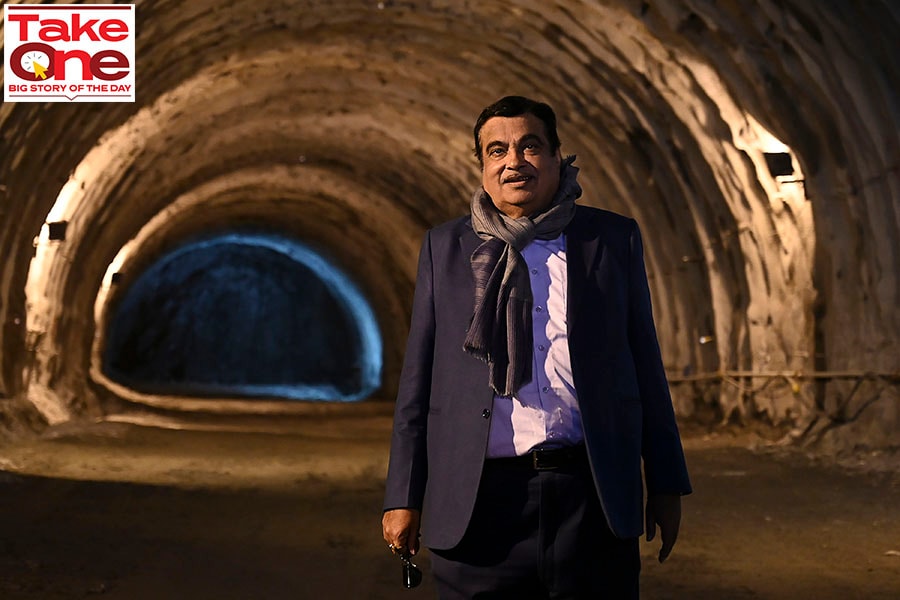
Tesla wants some concessions: Nitin Gadkari
The minister of road transport and highways in an exclusive and wide-ranging interview on Forbes India Pathbreakers Season 2 talks about India's ambitious EV rollout plan to boost growth
 (File)Indian Transport Minister Nitin Gadkari, poses to the media at the Zojila tunnel that connects Srinagar to the union territory of Ladakh, bordering China as he inspects the work at Baltal northeast of Srinagar, India. Photo: Tauseef Mustafa/AFP
(File)Indian Transport Minister Nitin Gadkari, poses to the media at the Zojila tunnel that connects Srinagar to the union territory of Ladakh, bordering China as he inspects the work at Baltal northeast of Srinagar, India. Photo: Tauseef Mustafa/AFP
Nitin Gadkari, minister of road transport and highways, has put India in the fast lane. In the last nine years, Gadkari has transformed the country’s highway network. Efficient allocation of capital and time-bound execution of road projects in a challenging environment are key factors that contributed to the rapid change in India’s transport infrastructure with the construction of new expressways, highways, tunnels, and ports. His focus on renewables and alternative fuels opened up new opportunities and ushered in a green revolution.
Gadkari set his sights high to accelerate India’s growth momentum. Not just infrastructure, he wants the manufacturing sector to drive growth too, and he is betting big on the automobile industry for this. In line with this vision, there is a big thrust on the rollout and adoption of electric vehicles in the country.








